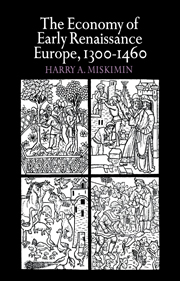Summary
The drama of historical change obscures its antecedents; it is however never unique to the moment of its occurrence, but rather the culmination of a more extended process. When an historian writes of an age of change, an “era of transition,” he must refer either to a heightening in the pace of historical development or to an unusual degree of compression and confluence of alterations in the fabric of history. Either of these criteria justify the historian in calling the early years of the fourteenth century an age of change. The forces marshaled by Pope Boniface VIII to defend the Church against the inroads of Edward I of England and Philip IV of France polarized the centuries-old struggle between secular and spiritual authorities and made redefinition of their relative roles imperative. A new and powerful body of secular political thought emerged from the claims and counterclaims of the parties; it was supported and defended by new and more powerful monarchs. The longbow, gunpowder, and improvements in military strategy threatened the nobility with functional obsolescence. The success of the townspeople of Flanders, armed only with pikes, in slaughtering the French knights at Courtrai in 1302 proved that the threat was real. The instability of the agricultural base, the foundation upon which society is built, was revealed only a few years later; the worst famine of the Middle Ages occurred in 1315–17, presenting Europe with the spectre of starvation and the possibility of a general Malthusian food crisis. Before the middle of the century, however, the demographic effects of the famine appeared insignificant in the wake of the Black Death, a Pan-European epidemic of bubonic plague.
- Type
- Chapter
- Information
- The Economy of Early Renaissance Europe, 1300–1460 , pp. 1 - 13Publisher: Cambridge University PressPrint publication year: 1975



